What Is Solar Energy?
If you’re considering installing solar panels on your home, congratulations! You’re about to step into the world of renewable energy and potentially big savings on energy costs. But like any home improvement project, installing solar panels requires some homework. Understanding the essentials can make all the difference between a smooth transition to solar energy and a frustrating experience. This guide will take you through the solar panel basics you need to know before making an investment. Here’s what we’ll cover:
- How solar panels work and the benefits of solar energy
- The history of solar panels
- A breakdown of steps to prepare for your solar system
- How solar panels work and their benefits
- Key factors to consider before installation
How Do Solar Panels Work?
By utilizing the power of the sun, solar energy is an incredible way to help the environment while saving you thousands of dollars. Solar power is harnessed through photovoltaic (PV) cell technology – panels that convert sunlight directly into electricity. For those not proficient in solar panels or the “photovoltaic effect,” when the sunshine is absorbed by a PV cell, the photons of light excite the electrons in the cell, causing them to flow and generate electricity.

Homeowners, business owners, and agricultural experts from around the world are installing solar panel systems on their roofs to maximize the use of this clean, renewable method to generate power. Residents of Nebraska can join in on solar power’s benefits by contacting our team at J-Tech Construction & Solar. Sign up for a free solar estimate today.
Why Solar Panels?
The concept behind solar panels is simple. Harness energy from the sun, and use it to produce electricity. For years, research and advances in technology support that fact. Solar energy is an exciting way to reduce your carbon footprint. Over time, engineers have developed solar technology, making it easy to attain for everyday use. If you’re a homeowner looking to invest in this environmentally friendly solution, you probably have some questions. Here are some solar panel basics, that will bring you up to speed with the latest clean energy trends.
Benefits of Installing Solar Panels
- Lower Energy Bills: Reduce or even eliminate the electricity bills of solar customers.
- Environmental Impact: A solar energy system is a clean, renewable power source.
- Increase Home Value: Adding solar panels can significantly boost your home’s resale value.
- Energy Independence: Generate your own electricity and reduce reliance on power grids.
Solar panel background
To start, the solar panel industry relies on technology to effectively harness energy from the sun’s rays. In the 1800s, scientists first discovered that light could be a potential power source. Eventually, in the mid 1900s solar cells were invented. Since this revolutionary invention, there have been great advances in solar panel technology. Interestingly, a solar panel is made up of several photovoltaic cells. Photovoltaic is a big word that means sunlight is converted into electricity. These cells are usually made out of silicon. They convert sunlight into electricity using electric fields. Photons, or light particles, free the electrons in the electric field. These electrons are gathered by metal conductive plates and transferred to wires. These are the wires that carry the electricity to your home for everyday use.
Monocrystalline or polycrystalline?
Installing high quality solar panels will make all the difference in energy efficiency and panel durability. There are different models of solar panels available. Most commonly, crystalline silicon is the material used to manufacture solar panels. It’s known for being stable and reliable. One option, is monocrystalline silicon solar cells. These solar panels are made out of really high quality silicon that makes it more efficient and more expensive. On the other hand, polycrystalline solar panels use simpler silicon. Also, they don’t waste as much silicon material. However, each of these solar panels is engineered for minimal maintenance and a long service life.
Extra energy outputs
In addition, the effectiveness of your solar panels can be supported with a battery. Batteries are connected to some solar panel units to store energy. But, not every solar panel system needs a battery. The batteries serve as a back up to hold the excess energy produced. Battery type depends on how much you can afford. Of course, if you purchase a battery that’s too small it can be dangerous.
Solar panels that are not connected to a battery are connected to a grid to transfer the extra energy that is produced. This energy is filtered into a utility grid where other electricity consumers can benefit. You get the advantage of having a storage outlet for your electricity and your neighbors benefit from your contribution to the power grid.
Solar Power Benefits
Good for Our Environment
Unlike conventional power, solar energy produces zero harmful emissions that hurt the environment. Solar energy uses a clean and renewable process that uses an infinite resource and is harmless to wildlife.
Alternative to Fossil Fuels
In America alone, fossil fuels are used to generate an overwhelming 68% of the electricity we consume. As a result, the emissions generated from the combustion of these fossil fuels are incredibly harmful to our planet. Solar panels generate no emissions at all and last for decades.
Save Thousands in Energy Bills
By living “off the grid,” you are not only doing your part to help the environment, but you and your family will save thousands of dollars in energy costs.
Factors to Consider Before Choosing Solar Panels for Your Home
Choosing the right solar panels is essential for maximizing energy efficiency, reducing costs, and ensuring long-term sustainability for your home. With so many options available, understanding key factors can help you make an informed decision tailored to your needs.
Your Roof’s Condition
Before installing solar panels, check if your roof is structurally sound and can support the panels’ weight. If your roof is old or has damage like leaks or cracked shingles, it’s best to make repairs or replace it beforehand to avoid future issues. A solid roof prevents the costly hassle of removing and reinstalling panels for maintenance. Also, your roof’s orientation and pitch matter—south-facing roofs with a moderate angle typically capture the most sunlight. An installer can assess whether your roof is suitable for solar energy.
Sunlight and Shading
Solar panels work best with direct sunlight, so it’s crucial to evaluate how much sun your home receives year-round. Nearby trees, chimneys, buildings, and seasonal changes can all impact efficiency. Excessive shading during peak hours may lower energy output, reducing your investment’s benefits. To maximize energy production, use solar mapping tools or hire a professional for a site assessment. If shading is unavoidable, consider systems with microinverters to maintain efficiency.
Local Regulations and Incentives
Before installing solar panels, check local zoning laws, building codes, and HOA guidelines to ensure compliance. Research incentives like the federal Investment Tax Credit (ITC), which offers a tax credit for a portion of installation costs, as well as state and local rebates. Some utilities also provide net metering programs, allowing you to sell excess energy back to the grid. These incentives can vary by location and may have deadlines, so act quickly to maximize your savings.
Budget and Financing
Solar panels can be a big upfront investment, but there are financing options to make them more affordable. Costs include panels, inverters, mounting hardware, and installation, so start by setting a budget. Solar loans let you pay over time with monthly payments, while leasing or Power Purchase Agreements (PPAs) allow you to use solar energy without owning the system. Compare terms, interest rates, and long-term savings to find the best option. Though initial costs may be high, energy savings and government incentives often make solar a smart long-term choice.
6 Solar Panel Basics to Know Before Installing
Here’s a detailed, step-by-step guide to help you prepare for solar panel installation:
1. Understand Your Energy Consumption
Before installing solar panels, it’s essential to understand how much energy your household typically uses. Take a look at your electricity bill to identify your average monthly and yearly energy consumption. This information helps determine the size of the solar system you’ll need to meet your energy needs. If you plan to increase energy usage in the future (e.g., adding an electric vehicle or other appliances), account for this in your calculations. A properly sized solar system ensures you’re neither overpaying for extra panels nor falling short of your energy requirements.
2. Research Panel Types
Solar panels come in different types, each with specific benefits. Polycrystalline panels are often more affordable but slightly less efficient than monocrystalline panels, which are known for their high efficiency and sleek appearance. Thin-film panels, while lightweight and flexible, are usually less efficient and take up more space. Consider factors like your budget, roof size, aesthetics, and energy needs to choose the right type for your home. It’s worth consulting with a professional to understand which option works best for your specific circumstances.
3. Choose a Solar Installer Wisely
Selecting a reliable and experienced solar installer is one of the most critical steps in the process. A good company will guide you through every stage, including system design, obtaining permits, and the actual installation. Look for companies with positive reviews, strong credentials, and solid warranties on both products and labor. Experienced companies like J-Tech Construction focus on providing customized solutions that match your energy goals while ensuring the process is seamless and stress-free.
4. Evaluate Net Metering Options
Net metering is an excellent way to maximize the return on your solar power system investment. This program allows you to send any excess energy your solar panels produce back to the grid, earning credits on your electricity bill. However, net metering policies vary by state, so check with your utility provider to see if this program is available in your area. Understanding how net metering works can help you better calculate your savings and plan your solar panel system capacity.
5. Plan for Maintenance
Solar panels require minimal maintenance, but regular upkeep is essential to keep them running efficiently for their 25-year lifespan or more. Cleaning the panels periodically (especially if you live in an area with dust, pollen, or bird droppings) ensures maximum sunlight absorption. Additionally, schedule occasional inspections to check for any issues, such as loose wiring or shading from growing trees. Discuss maintenance requirements with your installer so you’re fully prepared to keep your system performing at its best.
6. Understand Warranties
A solar panel system is a long-term investment, so it’s important to understand the warranties that come with it. A good solar panel warranty typically includes a 20–25-year performance guarantee that ensures the panels produce at least 80% of their original capacity at the end of the warranty period. Additionally, check if your installer offers a workmanship warranty to cover issues related to installation, such as roof damage or system defects. Having comprehensive warranties in place gives you peace of mind and protects your investment for years to come.
Trusted Solar and Roofing Solutions with J-Tech Construction
At J-Tech Construction, we pride ourselves on being a trusted partner for all your solar power and roofing needs. Our team combines unmatched experience, high-quality materials, and a commitment to customer service to deliver solutions that stand the test of time. We understand that transitioning to solar energy is a significant decision, which is why we’re here to guide you every step of the way. With our local expertise and dedication to excellence, you can rest assured that your investment is in the best hands possible. Contact us today to get your free estimate and take the first step toward a brighter, more sustainable future!






